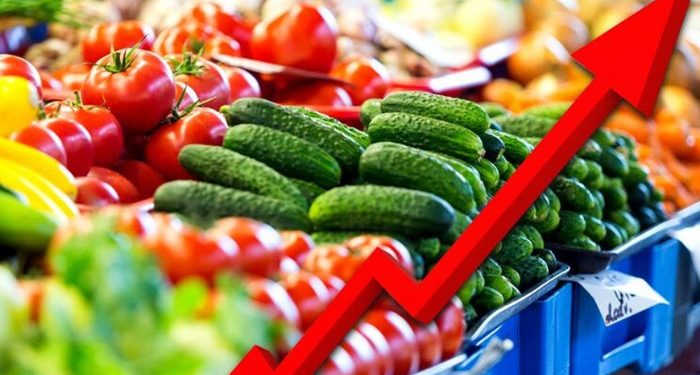Nigeria’s dependence on imported food and beverages rose sharply in the first half of 2025, with import bills reaching N677.3 billion, a 44.48 percent increase from N468.76 billion recorded in the same period last year. The surge has reignited debate among industry leaders who are calling for stronger government action to build local capacity, reduce dependence on imports, and strengthen the agro-industrial value chain that sustains many small businesses.
Data from the National Bureau of Statistics showed that while primary food and beverage imports meant for household use climbed steeply, processed products consumed by households fell slightly by 1.85 percent, from N699.58 billion in H1 2024 to N686.81 billion in H1 2025. Imports of primary products for industrial use rose marginally by 1.37 percent from N969.22 billion to N982.49 billion, while processed imports for industrial purposes increased by 7.28 percent, reaching N1.06 trillion.
Stakeholders in the organised private sector linked this sharp growth to weak domestic production, persistent insecurity, poor agricultural funding, inconsistent policies, and consumer preference for imported goods, believed to offer better quality and availability.
The Chairman of the Lagos Chamber of Commerce and Industry, Agricultural and Allied Group, Tunde Banjoko, said the data reflected Nigerians’ low confidence in locally produced food and raw materials. He noted that consumers often trust the quality, safety, and consistency of imported items more than local alternatives, largely due to poor funding, low-quality seedlings, inefficient production systems, and limited quality control.
He stressed that Nigeria’s poor storage infrastructure and weakened commodity boards have worsened the problem by causing seasonal shortages of local produce. According to him, the government must create stronger funding mechanisms for agribusinesses and ensure a guaranteed offtake system through commodity boards. He explained that without effective storage and structured markets, local farmers would continue to lose income while processors and retailers depend on imports to meet demand.
Banjoko urged the government to make agribusiness scalable and profitable enough for local producers to compete. He said with proper support and policies, Nigeria could begin to reverse the rising import trend and reduce pressure on foreign exchange.
The President of the Association of Small Business Owners of Nigeria, Dr. Femi Egbesola, attributed much of the problem to insecurity and the lack of technology in agriculture. He explained that many farmers have abandoned their farmlands due to rising attacks and displacement, reducing the supply of primary products for manufacturers and processors. He noted that local productivity remains very low because farmers still rely on outdated tools and practices.
Egbesola pointed out that the same cassava yield that requires 30 acres of land in Nigeria can be produced on just three plots in the Netherlands, underscoring the need for investment in mechanisation and modern techniques. He added that this gap presents major opportunities for small and medium-sized enterprises to invest in local production, processing, and technology-driven solutions that can reduce reliance on imported food.
Similarly, the Director of the Centre for the Promotion of Private Enterprise, Dr. Muda Yusuf, said the rise in imports was partly influenced by government import waivers and increased demand for wheat-based staples such as bread, noodles, and pastries.
He noted that the 180-day import waiver on maize and brown rice in 2024 affected this year’s figures, as many of those imports entered Nigeria early in 2025. He also cautioned that currency depreciation might have inflated the import values when measured in naira, even if the physical quantities did not rise significantly.
Yusuf advised that Nigeria must strengthen agricultural value chains, encourage alternatives to imported wheat, and address policy inconsistencies that discourage local investors from scaling production.
The Director-General of the Nigerian Association of Small and Medium Enterprises, Eke Ubiji, warned that the import surge does not necessarily reflect improved consumer welfare. He argued that many Nigerians are buying less food, not more, due to inflation and shrinking purchasing power. According to him, the growth in import figures may stem from industrial demand rather than household consumption, as consumers have been forced to settle for smaller, cheaper products.
He added that many families now opt for low-cost meals like noodles because that is what they can afford. Ubiji criticised government claims of improved living conditions, stating that essential food items remain beyond the reach of the average Nigerian.
Stakeholders agreed that reversing Nigeria’s growing dependence on imported food requires coordinated efforts between the agricultural, manufacturing, and trade sectors. They urged the Federal Government to address insecurity, incentivise agribusiness investments, improve access to finance, and strengthen value addition in local production.
Banjoko summed it up by saying that if Nigeria can make local production sustainable and competitive through improved funding, technology, and storage systems, the country will not only reduce its import bill but also ease pressure on foreign exchange and create more opportunities for MSMEs.
For years, the government has battled to achieve food security, with official data identifying food inflation as a key driver of overall inflation. Import restrictions under the previous administration, coupled with insecurity, made food increasingly scarce. However, the current administration’s national emergency on food security led to temporary waivers on selected food imports, including rice, in a bid to ease shortages.
While the government has claimed that the waivers helped reduce food prices, farmers and millers argue that such policies undermine local production and long-term food security. Although the National Bureau of Statistics reported that food inflation dropped to 16.87 percent in September 2025, down from 37.77 percent a year earlier, many industry players insist that the underlying challenges remain.
With agricultural imports already hitting N2.22 trillion in the first half of 2025, the concern is not just about rising bills but about missed opportunities for local businesses. For many small producers and processors, these trends underline the urgent need for government-backed funding, security, and infrastructure to ensure that Nigeria’s food system becomes self-sustaining rather than import-dependent.










